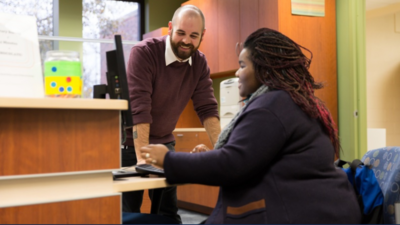How to Find Balance in College

It’s nearing the end of another school year, which means that most students here at Concordia are closing out at least their first full semester or year of undergraduate study. First, congratulations on making it through! Secondly, it’s likely that you may have noticed some aspects of your college life that could be improved on. Whether it’s your study habits, eating schedule, or the amount of sleep you get, there’s bound to be something that you’ve noticed isn’t working quite right.
A lot of this comes down to balance. Perhaps you haven’t been able to find the ideal number of credits to take per semester, or you are just wondering how you’re ever supposed to go to sports practice, get all your homework done, and magically find time for eight hours of sleep each night. It can become a lot to deal with; don’t worry if you feel a bit “unbalanced” at times. However, there are some pieces of advice that college students in this situation can take.
First and foremost, it’s crucial that you set realistic goals. Working toward something, even If it's a small task or improvement, can make all the difference between procrastination and motivation. Setting goals might not provide you with more time in the day, but it can make the time you do have well-spent. Plus, if the goals you set are realistic and based on what you know you can accomplish, then there’s a greater chance that you’ll feel the satisfaction of accomplishing them!
This ties into another tip for staying balanced: make sure to organize, prioritize, and write things down! It’s crucial that you remember what you need to do, and writing a list of all the tasks you need to accomplish by a certain time is a great first step in being able to complete them. Create an easy-to-use list by writing out everything you need to do, organizing it into categories, and assigning each task a number depending on its priority level. For example, studying for the test you have tomorrow might be a first-priority task, while writing an essay due at the end of the week might be number four or five.
These tips can certainly assist you with organizing your assignments, chores, and other required tasks, but sometimes, even organization might not be enough. If you’re feeling just too overwhelmed by the requirements of school, your personal life, work, or something else, finding balance means being able to reach out for help. This could look like speaking to your parents, professors, or even Concordia’s mental health counselors to seek help in managing your stress levels and emotions.
Even if you’re not feeling particularly overwhelmed, talking to family and friends can be especially helpful with feeling a sense of balance in college. “Balance” implies that you’re finding time to engage in activities that aren’t purely for educational purposes. Sometimes making a late-night Dairy Queen run with some friends from your hall, calling your mom at 2 p.m. on a Saturday, or FaceTiming a friend from home is the best activity to energize you for a long upcoming study session. Knowing when it’s time to put homework aside for a short time and take advantage of the social relationships around you is a vital part of a balanced life in college.
Finally, balance your daily life by checking in with yourself frequently – at least once, but perhaps multiple times each day. Ask yourself a few simple questions, such as “how am I feeling?” “Does something need to change so that I can feel more energized and relaxed?” and “What can I do to ensure that I know what I need to do and don’t become overwhelmed?” These questions can pave the way for a healthy relationship with the responsibilities you have as well as a better understanding of yourself and your needs.
When you check in with yourself often, you may find that it is easier to know what may make you feel overwhelmed, how much time you need to dedicate to relaxing activities versus “productive” activities, and even how many credits per semester you can take while still finding time to pursue non-academic passions. Balancing different aspects of your life, especially during the busy period that is your undergraduate educational journey, can be very hard. However, with these tips, perhaps you will gain some perspective on how to seek out and find this balance during your time here at Concordia.
Learn more about studying at Concordia by scheduling a visit on our visit page.
Related Stories


